Franklin
Surface Treatments
we specialize in providing top-notch surface treatment solutions tailored to meet the unique needs of our clients across various industries. Our surface treatment service encompasses a wide range of methods, including chemical treatment, thermal treatment, coatings, and mechanical treatment.
Types of Surface Treatment
Surface treatment is essential in enhancing the properties, performance, and longevity of materials. Here are some common types of surface treatment:
Coating
Coating involves applying a layer of material to the surface to protect it from corrosion, wear, and environmental factors. It also enhances the appearance of the surface.
Applications:
- Industrial floors
- Metal structures
- Machinery components
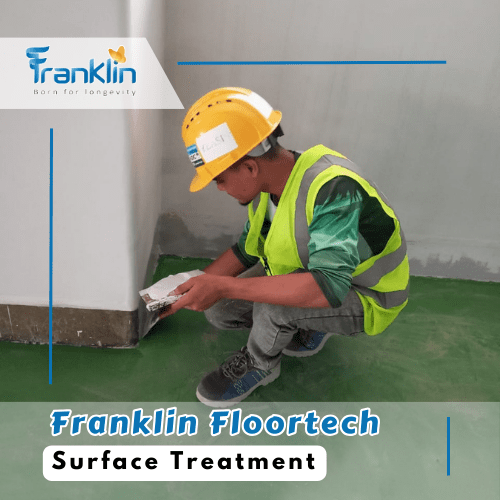
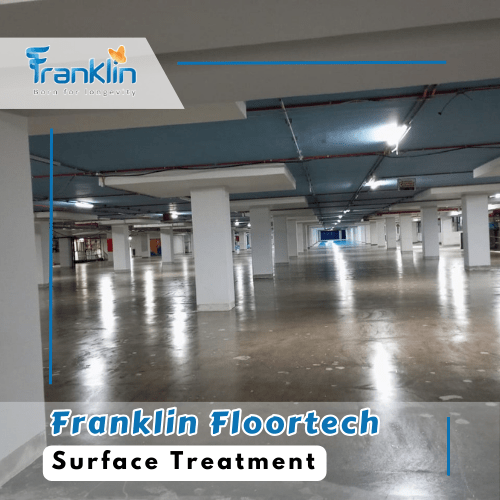
Plating
Plating is the process of depositing a thin layer of metal onto the surface of another material to improve corrosion resistance, wear resistance, and aesthetic appeal.
Applications:
- Automotive parts
- Electronics
- Jewelry



Anodizing
Anodizing is an electrochemical process that increases the thickness of the natural oxide layer on the surface of metal parts, enhancing their durability and resistance to corrosion.
Applications:
- Aerospace components
- Consumer electronics
- Architectural structures
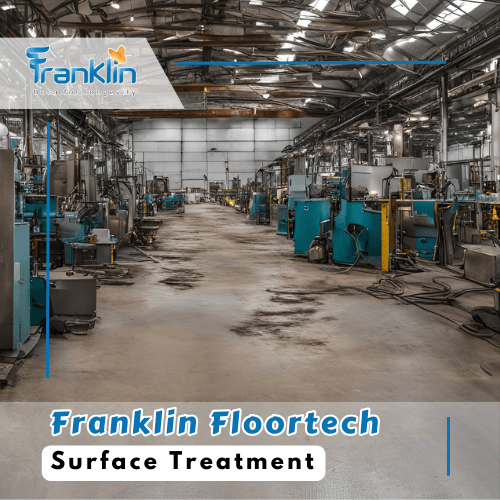
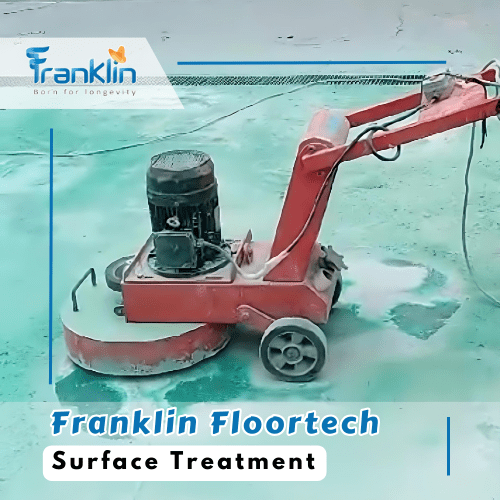
Etching
Etching involves using chemicals or physical methods to create patterns or textures on the surface of a material, which can improve adhesion, create decorative effects, or alter surface properties.
Applications:
- Circuit boards
- Glass decoration
- Metal fabrication
Cleaning
Surface cleaning is the process of removing contaminants such as dirt, oil, and rust from the surface of materials to prepare them for further processing or to improve their performance.
Applications:
- Pre-painting preparation
- Industrial maintenance
- Electronic manufacturing
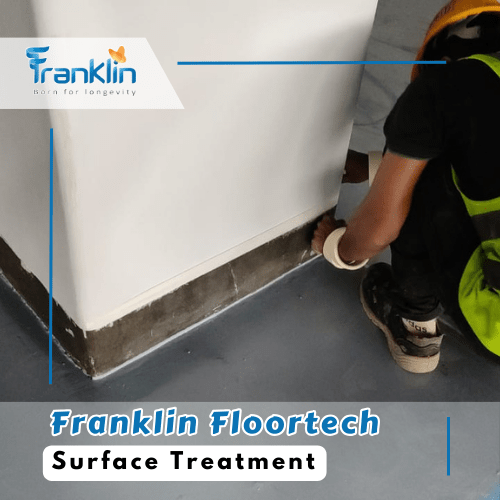

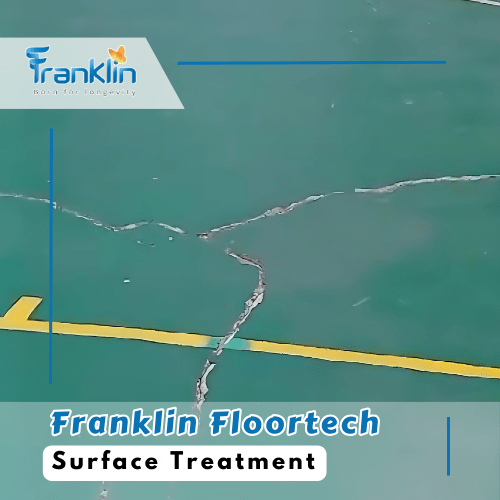
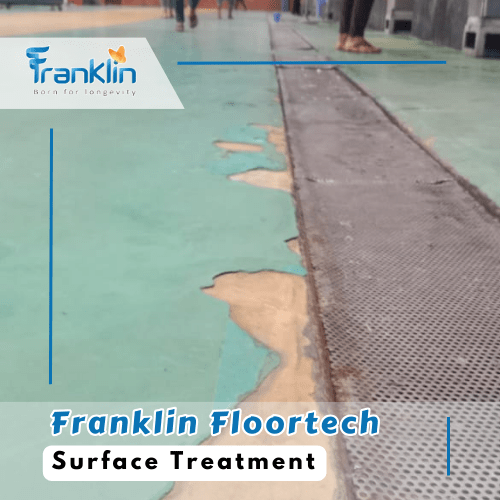
Surface Modification
Surface modification involves altering the surface properties of a material to enhance its performance, such as increasing hardness, reducing friction, or improving biocompatibility.
Applications:
- Medical implants
- Cutting tools
- Textile manufacturing
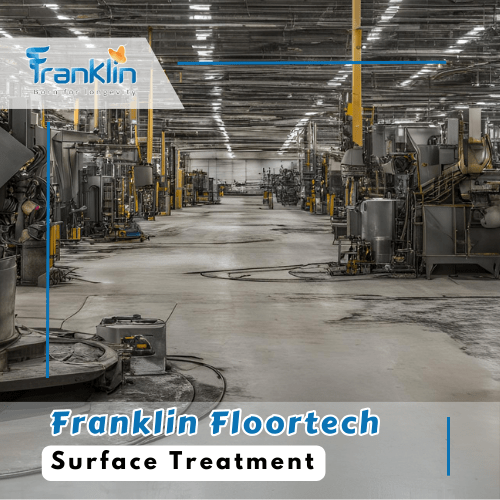
Surface treatment is a critical process across various industries, significantly improving the quality, performance, and lifespan of materials. Whether it’s through coating, plating, anodizing, etching, cleaning, or surface modification, these treatments provide tailored solutions to meet the specific needs of each application.
Benefits of Surface Treatment
Surface treatment offers numerous advantages to materials, tailored to specific treatments and applications. Here are some of the key benefits:
Improved Durability: Surface treatments can enhance the resistance of materials to wear, corrosion, and other forms of damage, significantly extending their lifespan.
Enhanced Performance: By modifying surface properties, treatments can improve the functionality of materials, such as increasing their resistance to heat, chemicals, or electrical conductivity.
Increased Lifespan: Proper surface treatment can protect materials from environmental factors and mechanical stress, leading to a longer service life.
Aesthetic Appeal: Surface treatments can enhance the appearance of materials, providing a smoother, shinier, or more attractive finish that meets specific design requirements.
Cost Savings: Extending the lifespan and performance of materials through surface treatment can reduce the need for frequent replacements or repairs, leading to significant cost savings over time.
Environmental Benefits: Some surface treatments can provide environmental benefits, such as reducing the need for harsh cleaning chemicals or improving energy efficiency through better thermal or electrical properties.
Overall, surface treatment is crucial in improving the quality, performance, and longevity of materials across various applications, making it an essential process in many industries.
Cost Associated with Surface Treatment
The cost of surface treatment can vary depending on several factors, including the type of treatment being used, the size of the surface being treated, and the condition of the surface. Here are some of the factors that can affect the cost of surface treatment:
Type of Treatment: Different surface treatments, such as coating, plating, anodizing, and chemical treatments, have varying costs based on the materials and processes involved.
Surface Area: The size of the surface being treated directly impacts the cost, with larger areas typically requiring more materials and labor.
Surface Condition: The initial condition of the surface can influence the cost, as surfaces that require extensive cleaning, repair, or preparation will increase the overall expense.
Material Cost: The cost of materials used in the surface treatment process, such as coatings, chemicals, or plating materials, can vary widely depending on quality and availability.
Labor Cost: The complexity of the surface treatment process and the level of expertise required can affect labor costs, with more intricate treatments demanding higher skilled labor and thus higher costs.
Overall, the cost of surface treatment can vary widely depending on these and other factors. It is important to consult with a professional surface treatment provider to determine the specific cost associated with your particular surface treatment needs.
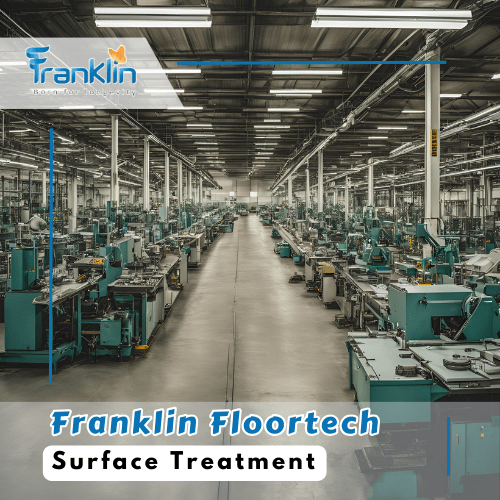
Contact Us
For reliable, high-quality surface treatment services, trust Franklin Floortech. Contact us today to discuss your project and discover how we can help enhance the performance, durability, and aesthetics of your materials.



